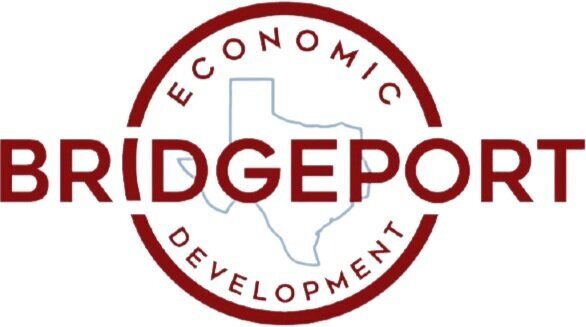
The Bridgeport EDC is Bridgeport’s lead agency for coordinating economic assistance and incentive agreements for the business community seeking to expand and/or relocate operations to Bridgeport. The Bridgeport EDC administrators the “4A” sales tax as its primary source of funding.
Bridgeport Incentives

Freeport Exemptions
The Freeport Exemption is a tax break for inventory that is only in Texas for a brief period – 175 days or less – before being shipped out of state.
A constitutional amendment exempting "Freeport Goods" from property taxes was adopted by Texas voters in 1989. This important exemption was created in an effort to entice enterprises with large inventories to relocate to Texas by providing a hefty tax benefit.
Freeport Exemptions - City cannot Tax On Inventory
Triple Freeport Exemptions - City, Schools and County cannot tax inventory
Local Bridgeport/EDC Incentives
Ad-Valorem Tax Grants: Utilizing a 380 Performance Agreement, grant back to the business a portion of their real property taxes paid.
Sales Tax Grants: Utilizing a 380 Performance Agreement, grant back to the business a portion of the sales taxes generated at the business.
Infrastructure Participation: Participate in the cost of public infrastructure necessary to establish the business.
Equipment Purchases: Participate in the cost of equipment critical to the cost of operating the business.
Relocation Expenses: Participate in the cost of relocating primary employees to Bridgeport.
Employee Training: Participate in the cost and coordination of training employees that would work at the business.
State Incentives

Texas Enterprise Zone
The Texas Enterprise Zone Program (EZP) is a state sales and use tax refund program designed to encourage private investment and job creation in economically distressed areas of the state.
To be eligible for the Texas Enterprise zone exemption. The company must maintain minimum capital and create/retain jobs that employ a percentage of economically disadvantaged individuals.
Texas Enterprise Fund (TEF)
The Texas Enterprise Fund (TEF) awards “deal-closing” grants to companies considering a new project for which one Texas site is competing with other out-of-state sites. The fund serves as a financial incentive for those companies whose projects would contribute significant capital investment and new employment opportunities to the state’s economy.
This brings competition to Texas. The company is eligible when they have a significant amount of investment to compete with a company out-of-state and have not made a decision on where the company will be placed.
Chapter 380
Chapter 380 of the Local Government Code authorizes municipalities to offer incentives designed to promote economic development such as commercial and retail projects. Specifically, it provides for offering loans and grants of city funds or services at little or no cost to promote state and local economic development and to stimulate business and commercial activity.
In order to provide a grant or loan, a city must establish a program to implement the incentives. Before proceeding, cities must review their city charters or local policies that may restrict a city's ability provide a load or grant.
Chapter 312
A tax abatement is a local agreement between a taxpayer and a taxing unit that exempts all or part of the increase in the value of the real property and/or tangible personal property from taxation for a period not to exceed 10 years. Tax abatements are an economic development tool available to cities, counties, and special districts to attract new industries and to encourage the retention and development of existing businesses through property tax exemptions or reductions. School districts may not enter into abatement agreements.
Local governments often use property tax abatements to attract new industry and commercial enterprises and to encourage the retention and development of existing businesses. Incorporated cities, counties, and special districts are allowed to enter into tax abatement agreements. School districts cannot enter tax abatement agreements. While tax abatements are short-lived, they can have a significant future impact.
WANT TO JOIN THE COMMUNITY?
LEARN MORE ABOUT US







